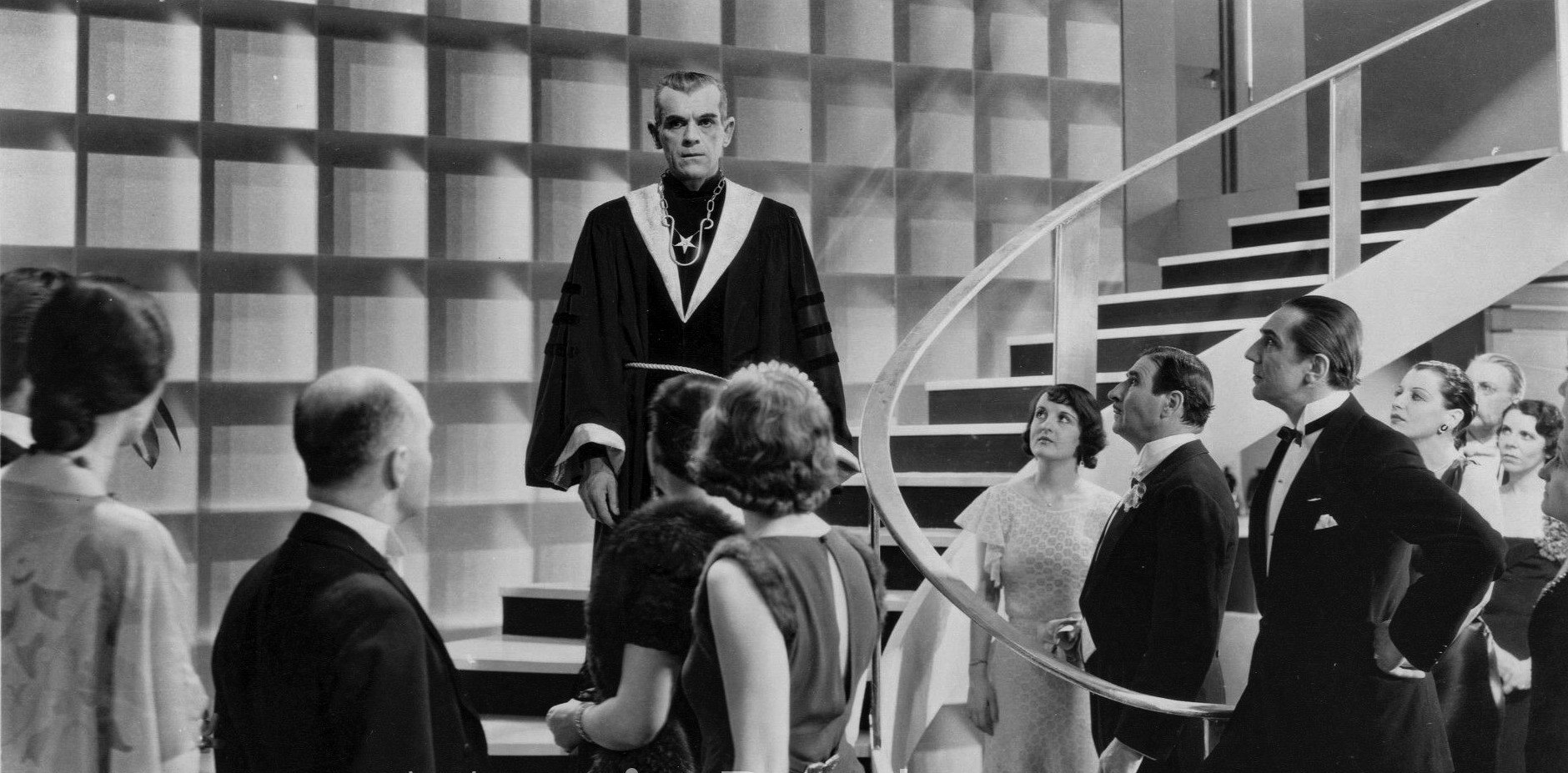

This web site has been devoted for the most part to a textual/historical analysis of the Missa Niger, published by Aubrey Melech in 1986. My hopes were initially that this would prove to be an historic Black Mass dating from at least the time period of the French Satanist novel la Bas (1895). However, after much research and analysis, I have come to the conclusion that this is not the case.
What seems to be the truth about the Latin Black Mass as we have it, is that it was created in its final form - the Missa Niger - to coincide with the appearance of the 1987 Satanic movie "Angel Heart", directed by the British film director Alan Parker. The Missa Niger was published by "Aubrey Melech" in 1986, who was none other than a British occult writer by the name of Bernard King (known among other things for his book on runes). "Melech" is the Hebrew word for King, which is another clue. (That Bernard King is the likely author of the Missa Niger is also discussed in "The Lure of the Sinister", by Gareth Medway, 2001, who for some reason, perhaps because he knows neither French nor Latin, believes that the Missa Niger was written in French, instead of Latin: "...[Melech's version of the Black Mass], which was fairly similar to LaVey's and included the same prayer from Là-bas...", "Appendix: The Black Mass". Melech's version of course, didn't contain any of Huysman's French prayer, and was written completely in Latin). The main clue, however, is the novel itself, off of which the movie Angel Heart is based. The novel, called "Falling Angel", by William Hjortsberg, published in 1978, contains some unusual phrases in Latin, which undoubtedly inspired the creation of the Missa Niger, to coincide with the production of the movie Angel Heart. Apparently Alan Parker wanted an authentic book containing the Black Mass in Latin to be produced along with his movie Angel Heart, perhaps with the intention of using the book as a realistic prop in his movie. He wanted to try and model it after a similar book mentioned in "Falling Angel". So he requested Bernard King to produce such a Black Mass. King, drawing the name of his Black Mass directly from the book "Falling Angel", called his Latin Black Mass "Missa Niger". He drew directly from Anton LaVey's published Messe Noir, modifying it to create a complete Black Mass in Latin.
Following are references to a Latin Black Mass from "Falling Angel", which prove beyond a shadow of a doubt the true source of inspiration for the Latin Black Mass that we have today:
Searching among the disordered papers on the desktop, a small printed card edged in black caught my attention. An inverted five-pointed star inscribed within a circle was printed at the top. Superimposed within the pentagram was the head of a horned goat. Below the talisman it said MISSA NIGER in ornate caps. The text was also in Latin. At the bottom were the numerals: III. XXII. MCMLIX. It was a date. Palm Sunday, four days away.
"Can I see?"
"Why not?" I got up and showed her the card.
"MISSA NIGER," she read. "Invito te venire ad clandestinum ritum..."
She held the card like it was the ace of spades. "This is an announcement of a Black Mass."
"A what?"
"Black Mass. It's some kind of magical ceremony, devil worship. I don't know too much about it."
"How do you know for sure, then?"
"Because that's what it says. Missa niger is the Latin for black mass."
"You read Latin?"
"Can you translate the whole thing?"
"Easy," Epiphany smiled. "It says: 'You are invited to attend a secret ceremony to the glory of Lord Satan and his power.' That's all. Then there's the date, March 22nd, and the time, 9:00 P.M. And down here it says, "Eastside Interborough Rapid Transit, 18th Street Station.'"
"Here." She handed me another, not much heavier than a dictionary. "The chapter I marked is all about the Black Mass. The liturgy is described in detail, everything from the backwards Latin to the virgin deflowered on the altar."
So all romantic desires to trace the Latin Black Mass back to some hundred year old French Satanist group appear to be in vain. The true sources began in the late 1960s and early 70s, with the rock band "Coven" and the foundation of the "Church of Satan". The book "Falling Angel", in 1978, provided the seed for the eventual movie "Angel Heart", and the "Missa Niger", or Black Mass completely in Latin, in 1986.
Lest one would search in the book "Falling Angel" for more clues, the reader may be unhappy to discover that "Falling Angel" is nothing more than the story of a desperate man sinking deeper and deeper into a whirlpool of sex and murder, gradually realizing that his soul is not his own, but instead is on its route to returning to Satan, as the result of a Black Mass and a pact with the Devil.
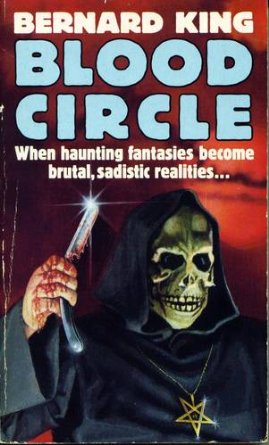
And as Bernard King himself writes at the beginning of his book Blood Circle (copyright 1989): "Many thanks to Aubrey Melech for access to much unpublished research material, and to himself and his publisher, Sut Anubis Books, for permission to quote from Missa Niger: La Messe Noire."

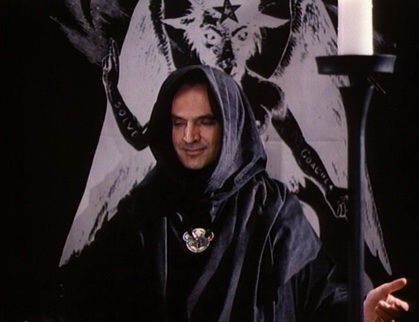
Although Alan Parker apparently never used any of Aubrey Melech's Missa Niger in the movie Angel Heart, over Christmas 1987, a year after it's publication in England, American exploitation film director Roberta Findlay created a movie Prime Evil, that directly quotes Aubrey Melech's new Latin Black Mass material, and even corrects some errors in it. The Satanic priest in the movie, Thomas Seaton (played by William Beckwith), pronounces long sections from Melech's Black Mass in perfect church Latin. The Satanic ritual that appears in Prime Evil, seems at first as if it could have all been taken from Anton Lavey's Satanic Bible and Satanic Rituals. However, in the second half of the movie, are long Latin quotes that only could have been taken from Aubrey Melech's Black Mass, and they match his material closely. Roberta Findlay says in an interview about the movie, that they got all their props for the movie from The Magickal Childe occult bookstore in New York, and filmed the black mass scenes from the movie inside of the Union Theological Seminary. One of the props they certainly must have acquired at the Magickal Childe was Aubrey Melech's recently published Missa Niger. Although Ed Kelleher and Harriette Vidal are credited with writing the movie script, and also wrote the book based on the movie, Prime Evil (dated September 1, 1988), no Latin Black Mass material appears in the book at all. So it can be guessed that adding Aubrey Melech's Latin Black Mass to the movie, was Roberta Findlay's innovation.
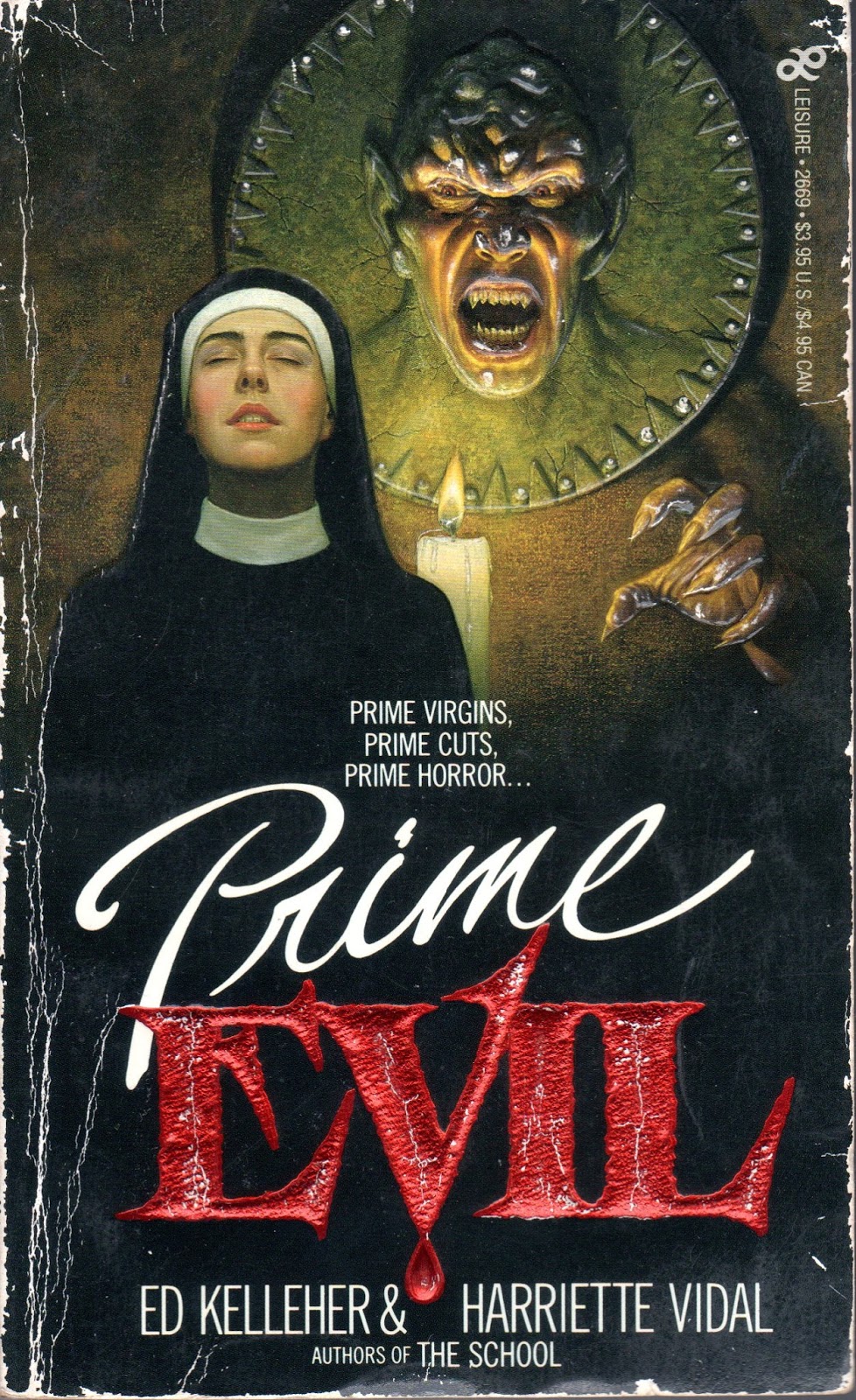
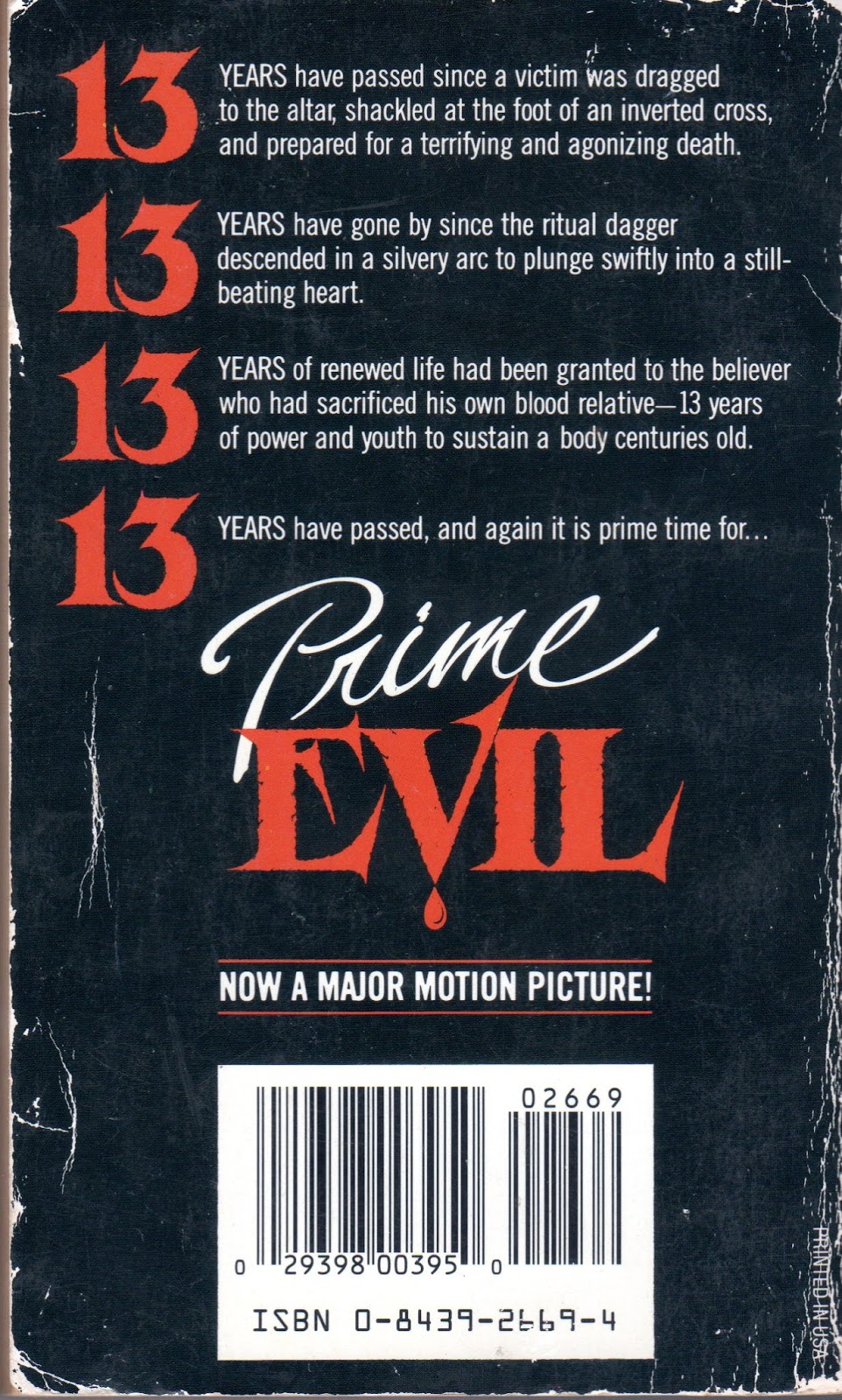

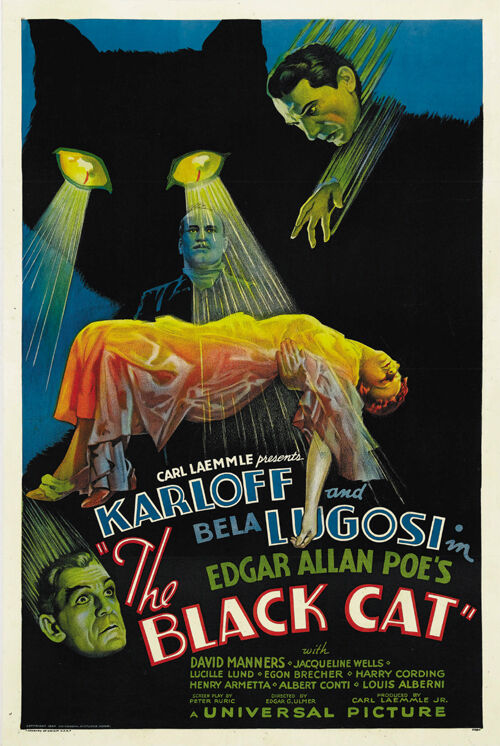
The first appearance of a Latin Satanic ritual in film, was in the 1934 movie The Black Cat, with Bela Lugosi and Boris Karloff. Boris Karloff plays the Satanist Hjalmar Poelzig, and recites a Latin Black Mass that he himself created for the movie. As can be seen, it is merely a series of Latin sayings strung together. By comparing Karloff's Latin ritual, with the Latin ritual in Roberta Findlay's movie Prime Evil, it is evident that the Black Mass ritual appearing in movies has transitioned from the Latin language merely being used as a meaningless series of phrases for a prop in the movie, to the movie containing an actual Satanic ritual in Latin.
| Boris Karloff's Black Mass | English |
|---|---|
|
Cum grano salis. Fortis cadere cedere non potest. Humanum est errare. Lupus pilum mutat, non mentem. Magna est veritas et praevalebit. Acta exteriora indicant interiora secreta. Aequam memento rebus in arduis servare mentem. Amissum quod nescitur non amittitur. Brutum fulmen. Cum grano salis. Fortis cadere cedere non potest. Fructu, non foliis arborem aestima. Insanus omnes furere credit ceteros. Quem paenitet peccasse paene est innocens. |
With a grain of salt. A brave man may fall but he cannot yield. To err is human. The wolf may change his skin but not his nature. Truth is mighty and will prevail. External actions show internal secrets. Remember when life's path is steep to keep your mind even. The loss that is not known is no loss at all. Heavy thunder. With a grain of salt. A brave man may fall but he cannot yield. By fruit, not by leaves, judge a tree. A madman believes all others mad. Who repents from sinning is almost innocent. |
